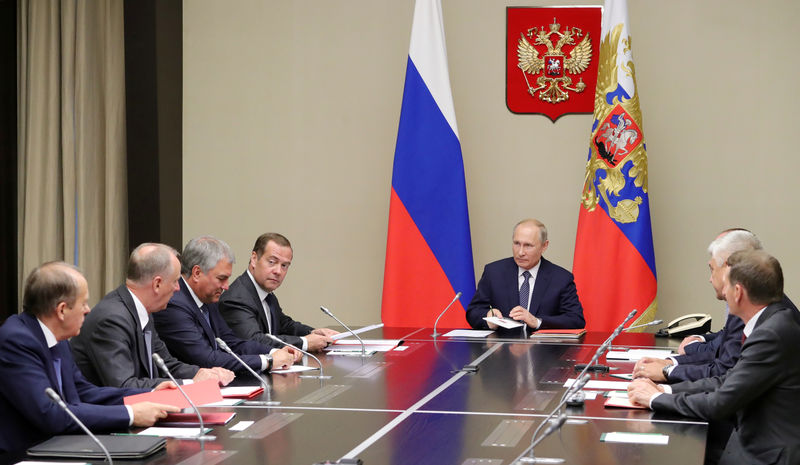MOSCOW (Reuters) - Russia said on Monday it would take measures to defend itself if the United States stationed missiles in Asia following the collapse of a landmark arms control treaty and that it expected Japan to deploy a new U.S. missile launch system.
U.S. Defence Secretary Mark Esper said on Saturday that he was in favour of placing ground-launched, intermediate-range missiles in Asia relatively soon.
The U.S. official made the comment a day after Washington withdrew from the Intermediate-range Nuclear Forces Treaty, a Cold War-era pact signed in 1987 that banned land-based missiles with a range of between 310 and 3,400 miles (500-5,500 km).
Asked about the possible U.S. missile deployment, Deputy Foreign Minister Sergei Ryabkov said Russia did not plan to get sucked into an arms race with Washington, but that it would respond defensively to any threats.
"... If the deployment of new U.S. systems begins specifically in Asia then the corresponding steps to balance these actions will be taken by us in the direction of parrying these threats," Ryabkov told a news conference.
He said Moscow expected Tokyo to soon station the U.S. MK-41 missile-launching system in Japan.

"The universal MK-41 launch system that will appear, it seems, in Japan can also be adapted to be used to launch medium-range cruise missiles ... So these new systems when they appear in Japan will without doubt also be taken into account during our corresponding planning," he said.